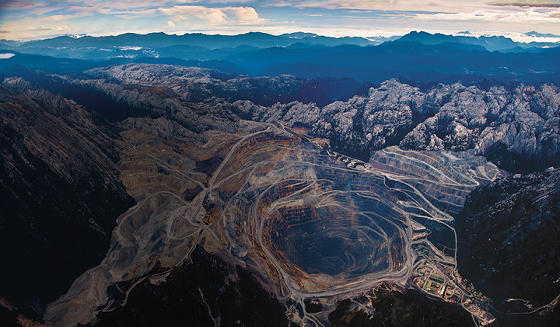One small step for mining’s new frontier

This is what a mining, metals market meltdown looks like
January 17, 2016
Oil, Asian stocks rout deepen miners wounds
January 25, 2016
ONCE a figment of science fiction films, the sometimes risky notion of mining in space may soon become a reality if asteroid mining hopeful Planetary Resources has its way.
A mining operation in space could bear some resemblance to what people have seen in movie theatres considering the venture has backing from Avatar director James Cameron, but thankfully WA’s resource industry has more to learn than fear from a space mining push.
The frontrunner of the space mining corporate scene, which also counts Google bosses Larry Page and Eric Schmidt among its key investors, has lauded the US Congress’s approval of the Spurring Private Aerospace Competitiveness and Entrepreneurship (SPACE) Act in late 2015.
This controversially allows private companies to claim ownership of any non-living resources they obtain in space plus extends existing indemnities related to any possible catastrophic commercial aerospace launch failures up to 2025.
There are various problems with the SPACE Act, according to Australian Centre for Space Engineering Research director Professor Andrew Dempster, but he says it is a good start.
“Mining in space is real and we need to start thinking about how to regulate it, at an international level,” he says.
Asteroid hunters also have a new tool at their disposal with scientists recently developing a gamma-ray spectroscope capable of detecting metals in these orbiting rocks.
But the asteroid scoping technology is also expected to help the conventional mining industry.
“With companies in this business for a few years now, it is not surprising that new sensors for space prospecting are emerging,” Prof Dempster says.
“This is not a threat to terrestrial mining—quite the opposite in fact—the new sensors are also likely to be useful on Earth.
Prof Dempster estimates that a full off-earth mining operation is a decade or two away.
“It’s not happening tomorrow, but it is within the time-frames with which big mining companies operate,” he says.
However, Planetary Resources is mainly hunting for significant oxygen and hydrogen-hosting asteroids to produce rocket fuel for space shuttles.
This strategy avoids the headaches of making any asteroid product survive the re-entry into Earth’s atmosphere at a profit.
Curtin University astrogeologist Dr Martin Towner says WA could learn and contribute a lot to future off-Earth mining.
“The sort of technologies of autonomous and remote robotics used in space are very similar to the remote systems that are now arriving in the resource industry, so technology could flow both ways,” he says.
Notes:
Asteroid: Mission Extreme is now showing in the Scitech Planetarium and details how asteroids could represent stepping stones to other worlds in our solar system.
Source: www.mining.com


